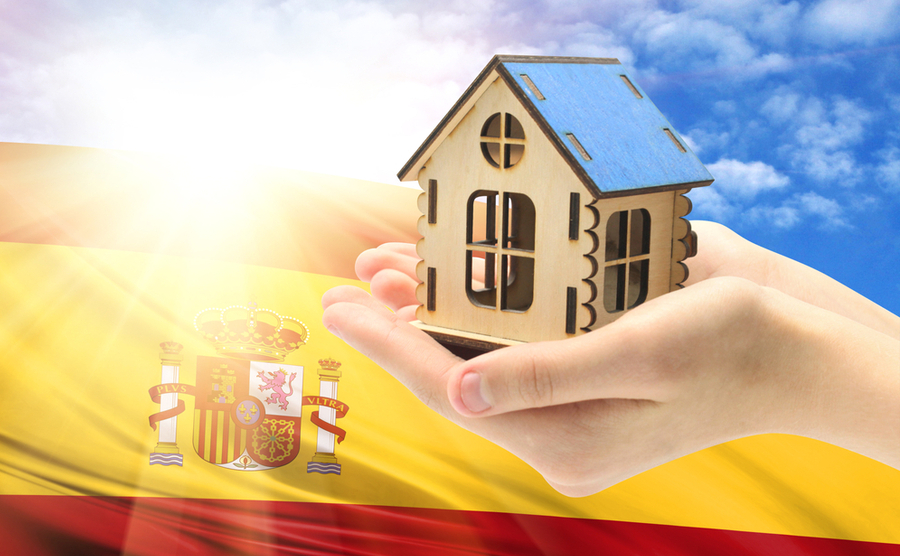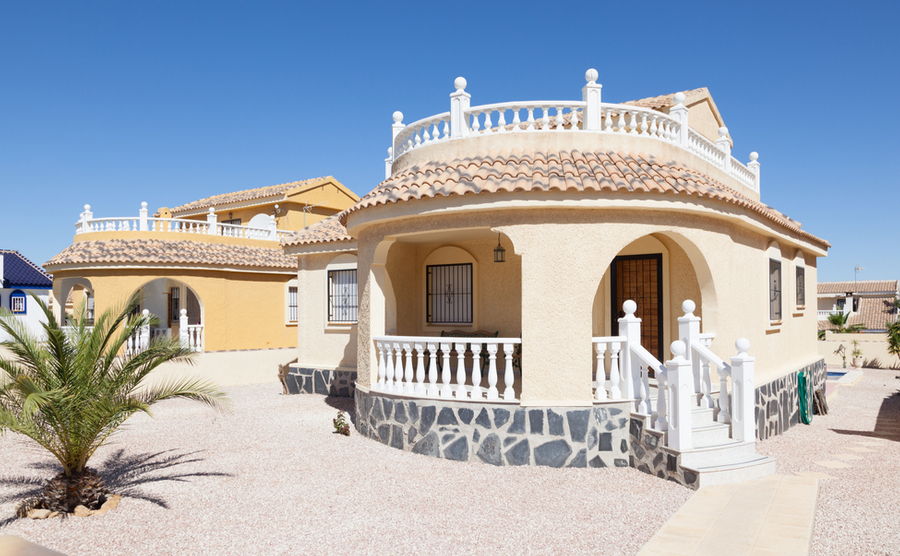A crucial part of the buying process in Spain is looking into mortgages. But getting a mortgage overseas can seem daunting and complicated. Is it even possible to get a mortgage in Spain as a non-resident? Yes, it is! Here are the answers to your most pressing questions on getting a Spanish mortgage.
In a recent webinar on the latest mortgage requirements in Spain, we spoke to Tim French of European Mortgage Advice Centre (EMAC). They specialise in Spanish mortgages. Their advisors are both English and Spanish speaking. Tim French is a mortgage broker of twenty years based in mainland Spain, he is registered and regulated by the Bank of Spain. If you are interested in watching the webinar, please click here. For now, here is a look at the useful information on mortgages in Spain that we picked up.
Find homes in Spain via our property portal.
First of all, can you get a Spanish mortgage as a non-resident?
Yes. Yes, you can! You can buy property in Spain and get a mortgage as a non-resident without trouble. However, your residency status does have an impact on how much you will be able to borrow from a Spanish bank.
If you go through with purchasing a property in Spain, this will not change your residency status. Since Brexit, British people are only able to stay in the Schengen Area for 90 days out of every 180. So, even with a home in Spain, you will be limited in how much time you can spend there, without a visa.
How much can you borrow as a non-resident?
Non-residents can get up to 70% of the purchase price, as long as the property is over €100,000.
Moreover, if the property is under €100,000 then the loan value will be 60%.
If you were buying the property as a British company, then the loan value would be a maximum of 60%.
How much can you borrow as a resident?
Residents can borrow 80% or even a little more. But for this to be the case, you have to be a resident in Spain and be earning a salary in euros at a Spanish company.
If you were working remotely for a UK-based company in Spain, then you would only get up to 70%.
The process:
To get a Spanish mortgage, you will need the following documents:
- Passport
- Utility bills
- Last three to six months of bank statements, depending on the lender
- If any of the funds are coming from a different account then proof of origin will be needed – such as if you were also using an investment account
If you are employed:
- The last three to six months of payslips
- Possibly an employer’s reference
Self-employed:
- Last two or three years of tax returns
- If they have a company, their profit and loss accounts
You will need an NIE (the Spanish equivalent of a national insurance number) to complete the buying process.
Luckily for us, if these documents are in English, then they do not have to be officially translated or notarised. This is not the case for documentation in some other languages.
You will also need a Spanish bank account
Once your mortgage has been approved, you open a bank account, and the mortgage payment will come from here. Furthermore, the 30% deposit and the closing costs have to be in that bank account a couple of days before completion.
When should you look into getting a mortgage for a Spanish home?
The excitable part of you probably wants to plunge into our property portal, fall head over heels for a handful of homes, head out on a viewing trip to see them all in-person and choose your absolute favourite, and then look into mortgages.
However, it is advisable to research your options for a Spanish mortgage first. Without doing this, you could end up reserving a property to then find out you cannot get the mortgage that you need for it and have to wave farewell. There is also a high chance that you would not get the reservation fee back. With mortgage planning in place, you will have a better idea of what your budget is and what it can stretch to.
How long does the application process for a Spanish mortgage take?
The process can be completed in as little as six weeks.
When will you pay your Spanish mortgage broker?
Your Spanish mortgage broker will charge 1% of the mortgage price plus VAT. Payment will be due upon completion.
If you have the cash to purchase your home in Spain, is it still worth considering a mortgage?
One advantage of opting for a mortgage is that if the pound is not strong to euro, it could be used as a way of waiting for the pound to get stronger.
When purchasing a property in Spain, you will be faced with a fluctuating exchange rate. Buying a property takes time, and in that time, the exchange rate could move against you. For example, if a property costs €500,000. In the space of six months, fluctuating exchange rates could increase the cost by as much as €21,000. This could either mean that you have to dig deeper into your pockets or park your Spanish home plans entirely. To prevent this happening, we recommend locking in a currency rate using a Forward Contract with Smart Currency Exchange.
What are interest rates like for Spanish mortgages at the moment?
Interest rates vary depending on the lender, the strength of the case, and the loans to value. If you wanted a maximum loan-to-value of 70%, you could get 2 to 3% fixed rate over a two year period.
Furthermore, if you purchase a property for around €60,000 or lower (the minimum is €30,000), then you should anticipate higher interest rates.
How do people work out how much they can borrow?
This is based to a debt-to-income affordability ratio. It is usually a 30-35% debt to income ratio. Consequently, if someone has a low debt to income ratio, then it is possible to get a low interest rate on your mortgage.
Does it matter if you already have a mortgage in the UK?
Having a mortgage in the UK does not impede on your ability to get a mortgage in Spain. So long as your debt-to-income ratio is such that you can get a mortgage in Spain, it does not matter if you already have one in the UK.
Can you be self-employed and get a Spanish mortgage?
While being self-employed does not impede on your ability to get a Spanish mortgage, the process does require different documentation. You will need to show your last three tax returns and bank statements.
If your income was affected by the pandemic – will you still be able to get a mortgage in Spain?
If you did experience a financially difficult year due to the pandemic, then banks are likely to be sympathetic to this. It may be that they ask to see the statements for 2019 or 2018 to make up for the anomaly of 2020. Moreover, as long as you have financially recovered since then, it is unlikely that there will be a problem.
How does age affect your ability to get a mortgage?
Generally, mortgages take term until age 70. Although it is possible to find ones that go up to 75 and even 80, so long as you have a strong pension in place.
If you are on your 60s and have employed children, they could be on the purchase and mortgage with you to lengthen the term. This could also save some inheritance tax further on down the line. If you’re interested in this option, download our guide to buying with family.
Ready to start thinking about your mortgage in Spain? Reach out to EMAC today.
If you’re interested on doing more research on the Spain buying journey, head here:

















